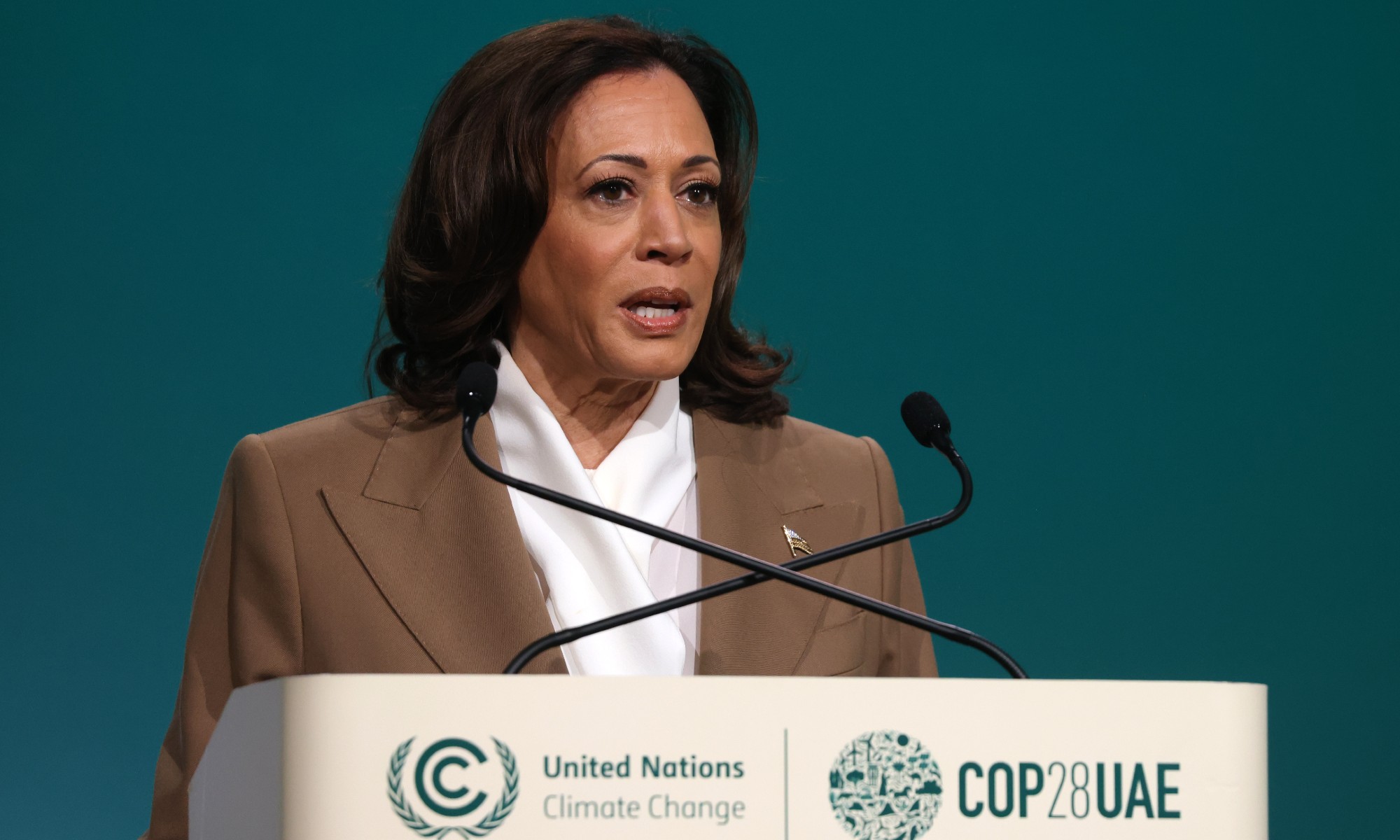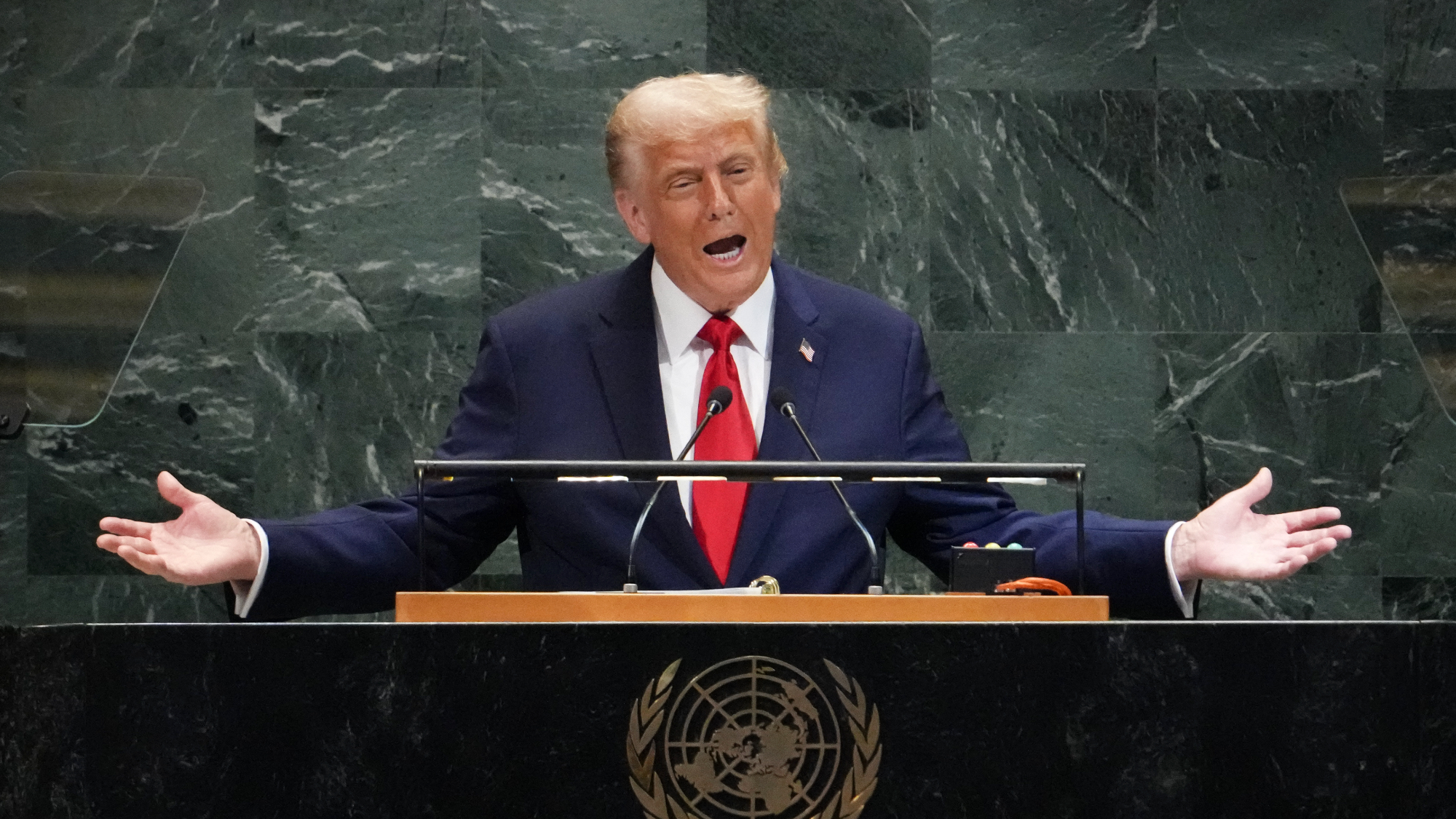Will Kamala Harris be a climate champion?
Here's how the vice president would tackle one of humanity's biggest challenges if elected


A free daily email with the biggest news stories of the day – and the best features from TheWeek.com
You are now subscribed
Your newsletter sign-up was successful
Climate change has long been a core priority for Democrats in national elections, with the party's voters much more likely than Republicans to believe that climate change is real and caused by human activities. U.S. climate policy has oscillated wildly between partisan administrations this century, with former President Trump pulling the country out of the Paris Climate Accords and President Biden rejoining them. While it has so far not been a top issue in the 2024 election, vice president and Democratic nominee Kamala Harris has climate plans that differ significantly from those of her Republican rival for office, former President Donald Trump.
What is Harris' climate history?
When Harris was California's junior senator from 2017 to 2021, she co-sponsored legislation that became known as the Green New Deal, outlining a series of goals designed to kickstart green energy production and make the U.S. gradually less dependent on fossil fuels. The text of the bill called for "eliminating pollution and greenhouse gas emissions as much as technologically feasible," but stopped short of a ban on fossil fuel consumption or production. It set a goal of "meeting 100% of the power demand in the United States through clean, renewable and zero-emission energy sources." As a candidate for president in 2019, Harris backed the Green New Deal and endorsed a ban on hydraulic fracking, a controversial method of natural gas extraction that is prevalent in the swing state of Pennsylvania.
As vice president, Harris cast the tie-breaking vote on the Inflation Reduction Act (IRA), which contained a variety of measures to boost clean energy production and expanded a clean vehicle tax credit to incentivize car buyers to choose electric vehicles. IRA also created new incentives for homeowners to adopt clean energy appliances and energy sources.
The Week
Escape your echo chamber. Get the facts behind the news, plus analysis from multiple perspectives.

Sign up for The Week's Free Newsletters
From our morning news briefing to a weekly Good News Newsletter, get the best of The Week delivered directly to your inbox.
From our morning news briefing to a weekly Good News Newsletter, get the best of The Week delivered directly to your inbox.
What is Harris' climate future?
There are no specific proposals related to clean energy or the climate crisis in the 82-page economic plan that the Harris-Walz campaign released in September. Climate change did not figure prominently in Harris' acceptance speech at the 2024 Democratic National Convention either. She said only that she believes in "the freedom to breathe clean air, and drink clean water and live free from the pollution that fuels the climate crisis."
Harris stands by the provisions in the IRA but has since backed away from her previous stance on fracking. Her campaign does not use the language of the Green New Deal, and in his debate with Republican vice presidential candidate J.D. Vance, Harris' running mate Tim Walz appeared to disavow the idea. Speaking about farmers in Minnesota who are getting battered by climate change, Walz said, "these are not folks that are Green New Deal folks," suggesting that the campaign regards the phrase as too extreme. Harris has pointed to the fact that the IRA also grants new leases for natural gas drilling as proof that she has consistently backed domestic fossil fuel production as vice president, and Walz similarly highlighted, in his debate, the fact that natural gas and oil production in the United States has increased under the Biden-Harris administration.
Why is Harris choosing not to emphasize her climate policy?
The Harris campaign has so far not released a detailed climate plan. The campaign website says only that she would work to "unite Americans to tackle the climate crisis," and mentions issue-areas like disaster resilience without outlining any specific proposals. This may be because polling shows climate change is not a top issue for voters in the 2024 election, and negative perceptions of the economy are making voters unwilling to entertain the idea of further sacrifices for the sake of the environment. In Gallup polling, the share of respondents who say that "protection of the environment should be given priority, even at the risk of curbing economic growth" has fallen from a high of 65% in 2019 to 52% in 2024. The Democratic Party Platform's section on climate change largely restates the policies in the Inflation Reduction Act and adds little in the way of new promises.
A free daily email with the biggest news stories of the day – and the best features from TheWeek.com
David Faris is a professor of political science at Roosevelt University and the author of "It's Time to Fight Dirty: How Democrats Can Build a Lasting Majority in American Politics." He's a frequent contributor to Newsweek and Slate, and his work has appeared in The Washington Post, The New Republic and The Nation, among others.
-
 How the FCC’s ‘equal time’ rule works
How the FCC’s ‘equal time’ rule worksIn the Spotlight The law is at the heart of the Colbert-CBS conflict
-
 What is the endgame in the DHS shutdown?
What is the endgame in the DHS shutdown?Today’s Big Question Democrats want to rein in ICE’s immigration crackdown
-
 ‘Poor time management isn’t just an inconvenience’
‘Poor time management isn’t just an inconvenience’Instant Opinion Opinion, comment and editorials of the day
-
 Trump’s EPA kills legal basis for federal climate policy
Trump’s EPA kills legal basis for federal climate policySpeed Read The government’s authority to regulate several planet-warming pollutants has been repealed
-
 How ‘Manchesterism’ could change the UK
How ‘Manchesterism’ could change the UKThe Explainer The idea involves shifting a centralized government to more local powers
-
 ‘Dark woke’: what it means and how it might help Democrats
‘Dark woke’: what it means and how it might help DemocratsThe Explainer Some Democrats are embracing crasser rhetoric, respectability be damned
-
 San Francisco tackles affordability problems with free child care
San Francisco tackles affordability problems with free child careThe Explainer The free child care will be offered to thousands of families in the city
-
 Trump pulls US from key climate pact, other bodies
Trump pulls US from key climate pact, other bodiesSpeed Read The White House removed dozens of organizations from US participation
-
 The Mint’s 250th anniversary coins face a whitewashing controversy
The Mint’s 250th anniversary coins face a whitewashing controversyThe Explainer The designs omitted several notable moments for civil rights and women’s rights
-
 US citizens are carrying passports amid ICE fears
US citizens are carrying passports amid ICE fearsThe Explainer ‘You do what you have to do to avoid problems,’ one person told The Guardian
-
 Inside Minnesota’s extensive fraud schemes
Inside Minnesota’s extensive fraud schemesThe Explainer The fraud allegedly goes back to the Covid-19 pandemic
